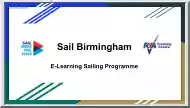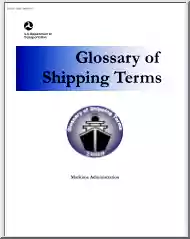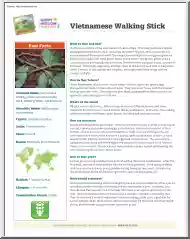Nincs még értékelés. Legyél Te az első!
Tartalmi kivonat
Training Guide for Clubs Increasing sailing participation Centre Principal Insert Name Club Development Officer Insert Name Junior Organiser Insert Name Insert club Logo 1 Contents Foreword – Why Sailing is such a great sport 3 Introduction 4 Who Organises Sailing in a Club 5 Key Roles 6-8 Who helps make an active and growing Club What are the Roles of these Key People Junior Section 9-10 What makes a successful Junior Section Tips for the Junior Organiser ISA Courses and Instructor Training Recruiting the Team 11 12 How can the ISA help your Club 13 Foreword “WHY SAILING IS SUCH A GREAT SPORT” Active, outdoor, physical, healthy, relaxing Constantly challenging Set and maintain goals Make life long friends Builds on skills of teamwork and communication Accessible to all ages Includes people with all disabilities Fun and sociable Annalise Murphy, Olympian 3 Introduction The
ISA is committed to developing sailing for all ages and introducing newcomers to this fun and active sport. This Guide has been created to help sailing clubs run successful sailing activities for adults and juniors. Both youth & adult sailors are crucial to the future health of our sport and we need to provide an environment where they can develop their skills and are then encouraged to use them to grow their passion for the sport. Sailors who are made feel welcome and are frequently in their club, are more likely to develop friendships and a lifelong connection with their club. Create structures that will support the recruitment and retention of members. Invest in the future of your club and the sport overall. Encourage sailors to progress to whatever level they aspire to. Create better sailors and enthusiastic volunteers. DEVELOPING SAILING PARTICIPATION IN YOUR CLUB WILL Develop family sailing activities as families that sail together stay in sailing long-term. All ages
sailing together keeps your club growing. Who helps make an active and growing club Who Organises Sailing in a Club Each club is uniquely different to the next All of the roles (sometimes combined) are normally held by volunteers. ISA Certification is not a pre-requisite Main Committee made up of members of your club. Junior Committee made up of members interested in youth sailing. WHO ORGANISES SAILING IN YOUR CLUB Children’s Officer oversees Child Protection Policy. Junior Organiser oversees junior sailing and liaises with the Club Development Officer to encourage integration of junior sailors Centre Principal the ISA rep in charge of training. Club Development Officer organises adult sailing activities & liaises with Junior Organiser to transition young sailors to adult membership All Clubs have common needs – HOW do we keep junior sailors sailing outside summer courses? can we transition junior sailors into youth and adult sailors? how do we increase
general sailing participation? 5 Key Roles WHO HELPS MAKE AN ACTIVE & GROWING CLUB Centre Principal Club Development Officer Junior Organiser Children’s Officer What are the roles of these Key people CENTRE PRINCIPAL (more details here) Keeps up to date with ISA Policy Ensures safe running of programmes Disperses information to relevant members Can post information re courses/instructor jobs on ISA website Overall manager of club activities CHILDREN’S OFFICER Establish contact with the ISA National Children’s Officer Encourage involvement of parents & guardians in club activities Influence policy & practice in club to prioritise children’s needs Promote awareness the ISA Code of Ethics & Good Practice for children’s activities Ensure children understand how to make concerns known 6 Key Roles cont’d CLUB DEVELOPMENT OFFICER Promotes training schemes for both new and
seasoned sailors of all ages Create active cruising and racing opportunities for members Represents club training at main club committee level Guides junior sailors to adult sailing activities Assists the integration of sailors from the junior programmes to the wider club activities co-ordinates skippers & potential crews Welcome face for new members – link with fellow members Open sessions of fun sailing in dinghies Organises power boat courses for club rescue & mark laying Encourages members to volunteer for committee boat Liaises with local business and community to promote sailing Involvement in Race Office & other shore based volunteer roles Aware of local marine tourism Social activities for sailors Use winter time opportunities to improve members skills for next season 7 Club Junior Organiser JUNIOR ORGANISER – THE ROLE JUNIOR ORGANISER – THE ANNUAL PLANNER January Advertise for Summer Instructors. Encourages Family
Use of the club February Interview Instructors. Check Certs in date Send out contracts Mid Term sailing clinics/ Instructor Training Courses Promotes 2 handed sailing to encourage sociability & fun March Promote Summer Courses. Update Application forms April Easter club sailing to start season Instructor Training Develop instructors from club sailors to give continuity May Regional events start Co-ordinates dinghy sailing/racing and inter club events June Induction for Instructors. Summer courses start Social events July Full Summer Courses Inter club racing August Preparation for Pre Entry Recommend Instructor upgrading to SI & advanced endorsements Communicates with sailors and parents to build enthusiasm September End of Season Regattas Represents junior affairs at Main Committee level October Junior Dinner /Prizegiving Winter training November End of Year Review / Refresh Committee Plan for Senior Instructor for next season
December Gain Committee support for following seasons plans Encourages sailing for all abilities among young members Organises summer courses relevant to needs of sailors Recruits instructor team and develops their skill set Has overview of types of boats sailed in their club and develop specific class coaching for these Works with club Development Officer to transition youth sailors to general club sailing 8 What makes for a successful Junior Section Volunteers & support from club Continuity & Planning Predominance of Double-handed boats Focus on fun & lifelong skills HEALTHY & SUCCESSFUL JUNIOR SECTION Support from ISA Develop Instructors Organically for club JO supported by main club Committee 9 General Tips for Junior Organisers Always encourage others to get involved as many hands make light work. Have a proper hand over when roles change as this gives better understanding of what is required and allows continuity. A
shadowing period helps give newcomers confidence. Have an overall development plan for your junior section and get support of the Main club Committee to implement this. It also ensures the junior section is seen as an integral and important part of the club. Regular coaching combined with time on the water is the key for young sailors to improve their sailing. Clubs should work towards having a club coach who offers a structured programme. Time on the water may be during Family Sail days or racing on a different type of boat. All help to develop friendships and connectedness to ones club. How active are your juniors? If they are not getting involved try to find out why and offer activities that address this. Always plan ahead and be ready for the following season. Teenage social evenings help form good bonds. Remember all sports experience a drop off in participation at 18 and sailing is no exception. By carefully planning and identifying the needs of this
age group you can minimise this. Family focused sports often do better at this stage as more inclusive so maybe that could be the solution. 10 ISA Courses and Instructor Training Sea Based Instructor Courses Cara na Mara Dinghy Sailing Keelboat Sailing Catamaran Sailing Sailing Yacht Motor Yacht Powerboat Windsurfing How to become a Sailing Instructor (more details here) Minimum age of 17 All Linked to website ISA Powerboat Level 2 Certificate (+20hrs Logged) Garda Vetting Clearance Shore Based Personal Courses Shore Based Navigation Sea Survival All Linked Marine Engines to website Radio Courses Disability Inclusion Training Safeguarding & Child Safety Search for Courses on www.sailingie Emergency Care Certificate Instructor Pre-entry Assessment DINGHY INSTRUCTOR 5 DAY COURSE SENIOR INSTRUCTOR 11 Recruiting the Team The size of the team will vary from club to club. The key is to have a team suited to the
requirement of your club that has the training and experience to operate safely and effectively in the specific location. Each centre will require one or more ISA Instructors trained in a range of teaching and sailing skills. THERE ARE FOUR LEVELS OF INSTRUCTORS : ASSISANT INSTRUCTOR - INSTRUCTOR - ADVANCED INSTRUCTOR – SENIOR INSTRUCTOR Each may be qualified in specific sailing or powerboat skills – Dinghy, Keelboat, Catamaran, Windsurfing or Powerboat When recruiting Instructors clubs should ensure that THEY: have suitable experience and qualifications for your courses understand to sailing area have experience of the range of boats sailed in the club understand how the Training Scheme is to be integrated into club activities provide details of their sailing experience and previous employment as an ISA Instructor PROGRAMME TO DEVELOP INSTRUCTORS FOR YOUR CLUB Clubs are encouraged to promote Instructor Training to sailors graduating through the club
programmes and then recruiting these Instructors to fill vacancies in the club. This ensures continuity, an understanding of the club ethos and the organic development of instructors who are suited to the specific club environment. organise in-club training to facilitate pre requisites (powerboat, first aid, pre-entry) identify and incentivise candidates for instructor upgrades such as advanced and senior instructor co-ordinate instructor training with neighbouring clubs 12 H How can the ISA help your Club ISA Training Department (www.sailingie/training) Nuala Rahill E: training@sailing.ie T: 01 2710114 ISA Regional Development Officer Eastern Region Sarah-Louise Rossiter E: sl.rossiter@sailingie M: 087 939 0488 ISA Regional Development Officer Southern Region Gail MacAllister E: gail.macallister@sailingie M: 086 221 4724 ISA Regional Development Officer Western Region Ciarán Murphy E: ciaran.murphy@sailingie M: 087 880 0744 Training &
Certification (link) Panel of Instructor Trainers (link) and Instructors (link) Recruitment and Employment Files (Link) Sailfleet Dinghies for hire by Clubs (link) ISA News (link) ISA Library (link) Junior Organiser’s Conference Voluntary Mentor Panel for Junior Organisers Technical Manuals: ISA Code of Ethics & Good Practice for Children’s Activities (link) Garda Vetting (link) Training Centre Inspection Checklist (link) Policy & Procedures Manual (link) 13 H CREDITS Special thanks to Helen Cooney , National Yacht Club & Alistair Rumball , Irish National Sailing and Powerboat School
ISA is committed to developing sailing for all ages and introducing newcomers to this fun and active sport. This Guide has been created to help sailing clubs run successful sailing activities for adults and juniors. Both youth & adult sailors are crucial to the future health of our sport and we need to provide an environment where they can develop their skills and are then encouraged to use them to grow their passion for the sport. Sailors who are made feel welcome and are frequently in their club, are more likely to develop friendships and a lifelong connection with their club. Create structures that will support the recruitment and retention of members. Invest in the future of your club and the sport overall. Encourage sailors to progress to whatever level they aspire to. Create better sailors and enthusiastic volunteers. DEVELOPING SAILING PARTICIPATION IN YOUR CLUB WILL Develop family sailing activities as families that sail together stay in sailing long-term. All ages
sailing together keeps your club growing. Who helps make an active and growing club Who Organises Sailing in a Club Each club is uniquely different to the next All of the roles (sometimes combined) are normally held by volunteers. ISA Certification is not a pre-requisite Main Committee made up of members of your club. Junior Committee made up of members interested in youth sailing. WHO ORGANISES SAILING IN YOUR CLUB Children’s Officer oversees Child Protection Policy. Junior Organiser oversees junior sailing and liaises with the Club Development Officer to encourage integration of junior sailors Centre Principal the ISA rep in charge of training. Club Development Officer organises adult sailing activities & liaises with Junior Organiser to transition young sailors to adult membership All Clubs have common needs – HOW do we keep junior sailors sailing outside summer courses? can we transition junior sailors into youth and adult sailors? how do we increase
general sailing participation? 5 Key Roles WHO HELPS MAKE AN ACTIVE & GROWING CLUB Centre Principal Club Development Officer Junior Organiser Children’s Officer What are the roles of these Key people CENTRE PRINCIPAL (more details here) Keeps up to date with ISA Policy Ensures safe running of programmes Disperses information to relevant members Can post information re courses/instructor jobs on ISA website Overall manager of club activities CHILDREN’S OFFICER Establish contact with the ISA National Children’s Officer Encourage involvement of parents & guardians in club activities Influence policy & practice in club to prioritise children’s needs Promote awareness the ISA Code of Ethics & Good Practice for children’s activities Ensure children understand how to make concerns known 6 Key Roles cont’d CLUB DEVELOPMENT OFFICER Promotes training schemes for both new and
seasoned sailors of all ages Create active cruising and racing opportunities for members Represents club training at main club committee level Guides junior sailors to adult sailing activities Assists the integration of sailors from the junior programmes to the wider club activities co-ordinates skippers & potential crews Welcome face for new members – link with fellow members Open sessions of fun sailing in dinghies Organises power boat courses for club rescue & mark laying Encourages members to volunteer for committee boat Liaises with local business and community to promote sailing Involvement in Race Office & other shore based volunteer roles Aware of local marine tourism Social activities for sailors Use winter time opportunities to improve members skills for next season 7 Club Junior Organiser JUNIOR ORGANISER – THE ROLE JUNIOR ORGANISER – THE ANNUAL PLANNER January Advertise for Summer Instructors. Encourages Family
Use of the club February Interview Instructors. Check Certs in date Send out contracts Mid Term sailing clinics/ Instructor Training Courses Promotes 2 handed sailing to encourage sociability & fun March Promote Summer Courses. Update Application forms April Easter club sailing to start season Instructor Training Develop instructors from club sailors to give continuity May Regional events start Co-ordinates dinghy sailing/racing and inter club events June Induction for Instructors. Summer courses start Social events July Full Summer Courses Inter club racing August Preparation for Pre Entry Recommend Instructor upgrading to SI & advanced endorsements Communicates with sailors and parents to build enthusiasm September End of Season Regattas Represents junior affairs at Main Committee level October Junior Dinner /Prizegiving Winter training November End of Year Review / Refresh Committee Plan for Senior Instructor for next season
December Gain Committee support for following seasons plans Encourages sailing for all abilities among young members Organises summer courses relevant to needs of sailors Recruits instructor team and develops their skill set Has overview of types of boats sailed in their club and develop specific class coaching for these Works with club Development Officer to transition youth sailors to general club sailing 8 What makes for a successful Junior Section Volunteers & support from club Continuity & Planning Predominance of Double-handed boats Focus on fun & lifelong skills HEALTHY & SUCCESSFUL JUNIOR SECTION Support from ISA Develop Instructors Organically for club JO supported by main club Committee 9 General Tips for Junior Organisers Always encourage others to get involved as many hands make light work. Have a proper hand over when roles change as this gives better understanding of what is required and allows continuity. A
shadowing period helps give newcomers confidence. Have an overall development plan for your junior section and get support of the Main club Committee to implement this. It also ensures the junior section is seen as an integral and important part of the club. Regular coaching combined with time on the water is the key for young sailors to improve their sailing. Clubs should work towards having a club coach who offers a structured programme. Time on the water may be during Family Sail days or racing on a different type of boat. All help to develop friendships and connectedness to ones club. How active are your juniors? If they are not getting involved try to find out why and offer activities that address this. Always plan ahead and be ready for the following season. Teenage social evenings help form good bonds. Remember all sports experience a drop off in participation at 18 and sailing is no exception. By carefully planning and identifying the needs of this
age group you can minimise this. Family focused sports often do better at this stage as more inclusive so maybe that could be the solution. 10 ISA Courses and Instructor Training Sea Based Instructor Courses Cara na Mara Dinghy Sailing Keelboat Sailing Catamaran Sailing Sailing Yacht Motor Yacht Powerboat Windsurfing How to become a Sailing Instructor (more details here) Minimum age of 17 All Linked to website ISA Powerboat Level 2 Certificate (+20hrs Logged) Garda Vetting Clearance Shore Based Personal Courses Shore Based Navigation Sea Survival All Linked Marine Engines to website Radio Courses Disability Inclusion Training Safeguarding & Child Safety Search for Courses on www.sailingie Emergency Care Certificate Instructor Pre-entry Assessment DINGHY INSTRUCTOR 5 DAY COURSE SENIOR INSTRUCTOR 11 Recruiting the Team The size of the team will vary from club to club. The key is to have a team suited to the
requirement of your club that has the training and experience to operate safely and effectively in the specific location. Each centre will require one or more ISA Instructors trained in a range of teaching and sailing skills. THERE ARE FOUR LEVELS OF INSTRUCTORS : ASSISANT INSTRUCTOR - INSTRUCTOR - ADVANCED INSTRUCTOR – SENIOR INSTRUCTOR Each may be qualified in specific sailing or powerboat skills – Dinghy, Keelboat, Catamaran, Windsurfing or Powerboat When recruiting Instructors clubs should ensure that THEY: have suitable experience and qualifications for your courses understand to sailing area have experience of the range of boats sailed in the club understand how the Training Scheme is to be integrated into club activities provide details of their sailing experience and previous employment as an ISA Instructor PROGRAMME TO DEVELOP INSTRUCTORS FOR YOUR CLUB Clubs are encouraged to promote Instructor Training to sailors graduating through the club
programmes and then recruiting these Instructors to fill vacancies in the club. This ensures continuity, an understanding of the club ethos and the organic development of instructors who are suited to the specific club environment. organise in-club training to facilitate pre requisites (powerboat, first aid, pre-entry) identify and incentivise candidates for instructor upgrades such as advanced and senior instructor co-ordinate instructor training with neighbouring clubs 12 H How can the ISA help your Club ISA Training Department (www.sailingie/training) Nuala Rahill E: training@sailing.ie T: 01 2710114 ISA Regional Development Officer Eastern Region Sarah-Louise Rossiter E: sl.rossiter@sailingie M: 087 939 0488 ISA Regional Development Officer Southern Region Gail MacAllister E: gail.macallister@sailingie M: 086 221 4724 ISA Regional Development Officer Western Region Ciarán Murphy E: ciaran.murphy@sailingie M: 087 880 0744 Training &
Certification (link) Panel of Instructor Trainers (link) and Instructors (link) Recruitment and Employment Files (Link) Sailfleet Dinghies for hire by Clubs (link) ISA News (link) ISA Library (link) Junior Organiser’s Conference Voluntary Mentor Panel for Junior Organisers Technical Manuals: ISA Code of Ethics & Good Practice for Children’s Activities (link) Garda Vetting (link) Training Centre Inspection Checklist (link) Policy & Procedures Manual (link) 13 H CREDITS Special thanks to Helen Cooney , National Yacht Club & Alistair Rumball , Irish National Sailing and Powerboat School



